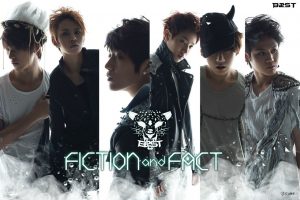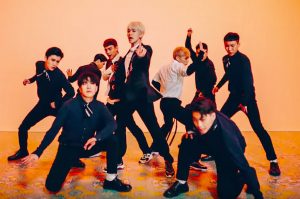
As we cross over into the 2020s, retrospectives on the past decade of K-pop abound. Year on year, the shifts in the K-pop scene may not be apparent, but looking back on a block of ten years, so much has changed. The way fans consume music shifted from CDs and illegally downloading zips—in 2010, the iTunes store was nowhere as well-stocked with K-pop as Apple Music is today, nor was Spotify available internationally—to streaming.
K-pop also cycled through a ton of genres: from electro-pop, dance pop, and dance ballads, to hip-hop and trap, and to future bass and tropical house. The music and styling went from emo and dramatic to mellow and moody, while breaking news went in the opposite direction, becoming darker, more complex, and more shocking than before. The Seoulbeats Decade in Review series delves deeper into some of these changes, balancing a critical lens with the writers’ perspectives as fans.

We first dipped our toes into a decade retrospective with a look at the Korean hip-hop scene. For the second Decade in Review feature, because combing through hundreds of releases for a top five list for our End-of-Year Reviews isn’t quite challenging enough, the Seoulbeats editors found a new form of self-torment: picking one song per year from 2010–2019 to talk about.
Our team of six—many of whom have been K-pop fans since the mid- and late-2000s—put our K-pop grandma heads together to look at the releases that stood out each year and defined the landscape, shaping it towards the scene we see today.
2010
Editors’ Picks: Beast – “Shock” / f(x) – “Nu ABO” / Kara – “Lupin” / Miss A – “Bad Girl, Good Girl” / Rainbow – “A”
Qing: Ah, the glorious, glorious days when K-pop was obsessed with dance pop. Vocals were lightly processed, the propulsive beats never allowed momentum to flag, and songs built up to memorable choruses.
Instrumental production wasn’t that creative, but well-written melodies allowed songs of this period to age well. Kara’s “Lupin”, produced by Sweetune, stands out with its ambitious soundscape, filled with steady percussive synths, orchestral flourishes, and gorgeously layered vocals. That bridge before the final chorus is better written than most choruses these days.
Janine: I was surprised at how many songs, from this year, I still listen to after ten years! I guess that fits with Qing’s observation that songs from this period aged well.
I had a lot of trouble finding a firm favourite but I could not deny the power, the intelligence, the clearance, the impact, the access, the international implications of Miss A’s “Bad Girl, Good Girl”. It was one of the most memorable songs, especially as it has been reinterpreted by younger groups and kept alive through the years.
Pat: Full disclosure: if I had my way, I would choose f(x) every year. But I’m going to have to champion “Nu ABO.” I love this song with all my heart. It is so of its time while being forward-looking. It had the hallmarks of many SM tracks that year; BoA’s “Hurricane Venus” and Shinee’s “Lucifer” coming to mind.
And yet, “Nu ABO” could easily be a track from the future, as it plays into the trends of later years. This was due to its futuristic instrumental that was at once cluttered while still playing into K-pop song tropes. “Nu ABO” was the first time, in my memory, that f(x) stood out from the crowd and the first step towards the heights they would later reach with everything from “Electric Shock” to “4 Walls.”
Qing: Digressing for a bit, “Lucifer” was the first song that came to mind, but I haven’t been able to think about it seriously since Gag Concert did a rendition of it with a Buddhist monk.
Karen: After a long and painful struggle between Beast’s “Shock” and FT Island’s “Love, Love, Love,” I’ll have to give it to Beast for the song that gave them their first M!Countdown win. Their fashion choices for the promotion of this release might seem over the top, what with the smokey makeup look, and the song’s slightly cringy electric beats in comparison to these days, but the song is somehow a bop even now. More importantly, Yoseob’s belting in this particular song is an unforgettable one that features in many of their later songs. Until their breakaway and renaming into Highlight, this song marks the start of a journey.
Aastha: 2010 was a tough pick for me, because it had so many great songs, but I had to settle on “A” by Rainbow. What a classic. With funky electronic beats and subtle drum and cymbals playing throughout the song, “A” makes for one of the most catchy K-pop songs I’ve heard. I remember playing the song on repeat for days (weeks, even).
“A” was the song that got me (and many others) interested in Rainbow, and it was one of the best releases of 2010. I still remember the “controversy” that came around with the ab reveal dance move. It’s interesting how far the industry has come in allowing supposedly suggestive dance moves on broadcast now, when similar moves were considered inappropriate then.
2011
Editors’ Picks: Beast – “Fiction”, “On Rainy Days” / DBSK – “Keep Your Head Down”
Aastha: Like Pat, I’ll be honest and say that if I could pick DBSK every year I totally would. Nonetheless, “Keep Your Head Down” deserves a shoutout. It marked such a presence: it was gritty and hard-hitting without being boring or over-produced.
It was also with this song that SM dived further into a modern, unique sound that encompassed loud and busy instrumentals; eventual releases “Mr, Simple” and “The Boys” followed a similar tone. The track wasn’t my cup of tea at first, but looking back at the song, the rapping, the vocals, and the percussion and guitar riffs bring across such a grand production. What a banger start to 2011.
Janine: “Fiction” is a hook. You don’t need to know anything about Beast to know that a song introduced by the sound of a pencil scribbling on a page is going to be a hit. The theatricality and layers brought to the brooding, insistent beat drew me in. Especially since “Fiction” was released after I had been raised on a solid diet of alternative dance and rock, featuring operatic vocals and house/electronic percussive elements. I loved every choice made in the song and the accompanying comeback.
Karen: Beast’s “On Rainy Days” was the song that kept me returning to the group for their ballads. Though their vocals were less stable at that point, “On Rainy Days” put a spotlight on the potential the group had for more emotional songs. The song is filled with satisfying harmonisations from the members, and the lyrics are especially poetic.
There is a timeless quality to the song, evading the pitfall of early 2010 electro synth sounds present even in ballads. As a predecessor to Beast’s more mature tracks like “Ribbon”, “On Rainy Days” stands as an important marker in my discovery of the group’s musical capabilities.
2012
Editors’ Picks: B.A.P – “Warrior” / Jay Park – “Turn Off Your Phone”
Qing: 2012 ushered in two great things: dance ballads and ground-breaking debuts. Exo’s “Mama” and its Gregorian chants that had spawned legions of macros (before those morphed into memes), Nu’est’s “Face” with its whirring synths, dance floor beats, and bold message about bullying, and BtoB’s stirring dance ballads had K-pop fans’ excitement reaching fever pitch.
But it was B.A.P’s “Warrior”, with its blazing walls of synths, shrill whistles, soaring vocals, and pelting raps, that remained seared in my memory. The song brought K-pop back to its hip-hop roots, but also set a direction for the future of a more rap-heavy, aggressive, yet still melodic style of K-pop.
Karen: Speaking of returning to hip-hop roots, this was the year I turned my attention to Jay Park for “Turn Off Your Phone.” Released a few years after his departure from JYP Entertainment and a year before the formation of his company AMOG, this particular song isn’t anything hardcore like from his 2PM days. Its more laidback beats and smooth melody makes it a satisfying listen even now. It spotlights Jay Park’s talents at both rapping and singing, and it’s one that will come to be brilliantly remade featuring ELO in 2016.
Janine: Coincidentally, I had trouble picking between “Turn Off Your Phone” and “Warrior”. I thought I had been playing “Turn Off Your Phone” in my car for years, only to discover I had been spinning the ELO remix. Since I prefer the remix to the original, I could not, in good conscience, decide in its favour.
Instead, I think the explosive, often imitated but never outshined, “Warrior” must be number one. I don’t think I have ever been as excited about a debut song as I was when I heard the fathomless baritone of Bang Yongguk barking, “B.A.P”.
Iconic.
2013
Editors’ Picks: 2PM – A.D.T.O.Y. / BTS – “I Like It” / Exo – “Growl” / Jaejoong – “Mine” / SNSD – “I Got a Boy”
Pat: Stick with me here. My choice is SNSD’s “I Got a Boy.” Was it the best song? Not by a long shot. But it set a trend that continues to be heard in K-pop: multiple songs seemingly combined into one song. Shinee‘s “Sherlock” also had two songs in one, but it combined smoothly and was not jarring, while the different portions of “I Got a Boy” were more contrasted. “I Got a Boy” was monumental in its shift of sound, and influenced songs that came after.
Chelsea: “I Got a Boy” was definitely an iconic earworm. I remember it being released, and all the mixed reactions it garnered. I loved it from the start, but I think a lot of the fandom took a while to warm up to it and keep up with it.
But, I don’t think you can talk about 2013 without talking about “Growl” which was released later in the year. “Growl” was the song that made Exo a household name, and marked the rise of third gen boy groups. “Wolf” was wild and almost laughable, but “Growl” was catchy in every way, clean, and well executed. I remember listening to the leaked version a day before release and being unable to take it off repeat — it was just that good. As an Exo fan since debut, I felt like this would be the song that would finally stick for the group. Even now, it’s Exo’s most iconic release.
Karen: I’m not an Exo-L, but I have to acknowledge “Growl” for its influence in K-pop. The song was an immaculate display of the group’s capabilities. It’s certainly recognisably Exo, and even now, it doesn’t feel dated.
I’m choosing BTS’ “I Like It” over their more hardcore tracks on their debut album, 2 Cool 4 Skool. This was the song that made me notice the group as more than playing with an edgy hip-hop concept. It was a good balance of rap and vocals, going with a stripped down instrumental and melodic tune. It has a more laid-back style that would evolve into the sentimentality and emotional depth of HYYH.
Aastha: The above picks are so good, and had none of these been chosen, I would have done so myself. My pick for 2013 is Jaejoong’s “Mine”. When we think about K-pop and Japan, we talk a lot about the export of the genre to Japan. Jaejoong’s “Mine”, on the other hand, is one of the only songs at this time that drew such a heavy influence from J-rock, and did it so incredibly well.
Rock is a genre not commonly explored in K-pop, although it has been gaining traction over the past few years. “Mine” came at a time when the genre was new and foreign to the industry. “Mine”’s delivery was amazingly raw, powerful and memorable. Idols having creative control over their material was so rare then, and it was a bold move for him to put out such a niche track. It also stands that he’s one of the few vocalists that could have pulled off the track as flawlessly.
Qing: Maybe one reason why rock isn’t readily picked up for title tracks is that it just doesn’t lend itself well to dance songs, despite remaining a staple in the discography of groups like FT Island.

That’s not to say that K-pop dance music didn’t draw from a range of genre influences, though. Like Chelsea, my vote goes to Exo’s “Growl”. I think back fondly on K-pop’s electro-pop and synth-pop-heavy days, but “Growl” paved the way for a sleeker, funkier style of dance pop that still felt so uniquely K-pop. It’s a sound that B.A.P (“Feel So Good”), Seventeen (“Adore U”, “Mansae”, “Boom Boom”), and Exo sub-unit Exo-CBX would later pursue. “Growl”’s impeccably layered harmonies and melodies also reminded listeners of the vocal prowess that idols possessed, a trait that often gets buried beneath fun earworms that K-pop choruses make for.
Janine: Exo made one of the most important songs in K-pop with the release of “Growl”. It’s one of my go-to songs when introducing people to K-pop because of the slick harmonies, infectious beat, and pure pop likeability. But when I am feeling self-indulgent, my go-to choice is a little more… Grown (pun intended).
“A.D.T.O.Y” is a song that becomes cheesier the more you find out about it. From the acronym standing for “all day I think of only you” to the point choreography, it’s almost too goofy to be sexy. Except. It was delivered shamelessly by a group of men who can literally make groping yourself look sexy: 2PM. “Growl” was the most important song, but “A.D.T.O.Y” was the most important song to me.
The mature sexy suit concept is a mainstay of boy groups of a certain age, but I like to believe the wanton sleaze of this comeback made an impact on subsequent groups. From History’s “Might Just Die” to every VIXX B-side, the overtly sexy song will always get my vote, and 2PM started it all.
2014
Editors’ Picks: VIXX – “Error” / Winner – “Empty”
Pat: I could have let my MeU side dictate my pick, but I decided to honor my other fandom. This year offered an amazing variety of songs to choose from that in the end, I decided to go with a sub-genre of K-pop that hardly gets mentioned. I love a good dance ballad, and VIXX’s “Error” was the epitome of the dance ballads of this much missed era of K-pop. Not only were there choruses, but they were glorious and so full of angst and emotion, enthralling the listener as the song builds and builds into the glorious crescendo of Ken and Leo’s high notes.
From the opening notes to the despondent end, “Error” has a story to tell, and in the span of three minutes and forty five seconds, they spend each moment building on this story, while still letting the song breathe and not be too much.
Qing: I’m seconding VIXX’s “Error”. It’s a glow up of the dystopic dance ballad sound popularised by T-ara (“Day by Day”, “Cry Cry”) and Beast (“Breath”, “Fiction”). It’s not just a song; it’s a synaesthetic experience. The reverberating synths that open the track evoke the high-tech machinery and sterile post-human labs of a sci-fi dystopia, while the lightly distorted vocals paint a fragile, desolate human figure straining against the forces of dehumanisation. The way a whole story world unfurls with each beat and melody layered in epitomises K-pop’s “go big or go home” mantra of this period.
Karen: Following all the spectacle that K-pop promised, I’m going to bring Winner’s official debut into the picture, with “Empty”. 2014 S/S is Winner’s masterpiece even till this day. They didn’t come out as a dance-heavy group, and “Empty”’s sentimentality was something only they could pull off. What’s more, it was a debut that spotlighted the group’s composing abilities. The group has since explored many different music styles, but the atmosphere that came with “Empty” is something that I still love and miss from the group now.
Janine: I miss 2014 S/S Winner too, Karen! The bluesy R&B influence in their debut was such a natural fit and it still feels fresh to hear a k-pop group interact with primarily live instruments on an album. 2014 S/S promised so much and then developed into the kind of confidence that brought us songs like “Baby Baby”. It can’t be overstated!
That being said, my vote goes to “Error”. The production, vocals, and performance elements of “Error” are so perfectly executed to communicate the eeriness and melodrama of the concept. The single screeching note periodically sprinkled through the song, the strings, the harmonies, the synchronised bass pulse that sounds like an inhaled breath… there are too many perfectly pitched sonic moments to ignore it.
Stay tuned for the second part of this discussion, featuring the editors’ song picks from 2015-2019.
If you enjoyed this discussion, you may like our other Decade in Review articles or our Mid-year and End-of-Year reviews on albums.


